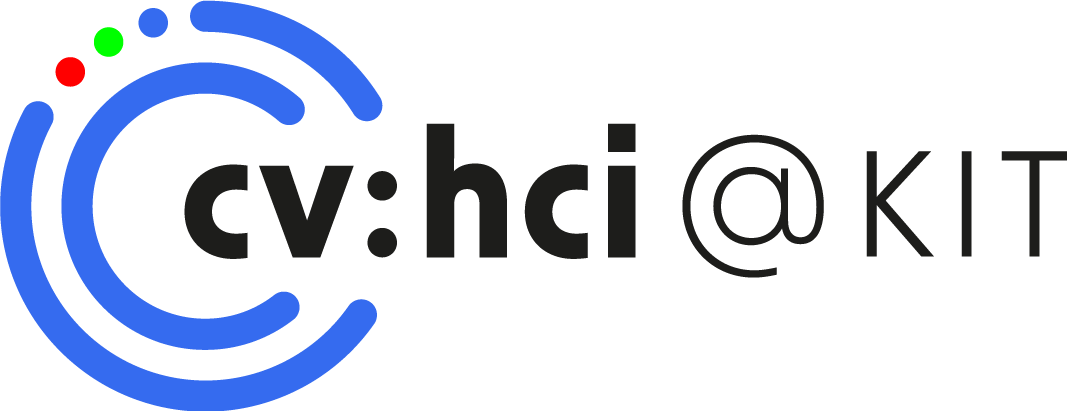Barrierefreiheit - Assistive Technologien für Sehgeschädigte (SS19)
Accessibility - Assistive Technologies for Visually Impaired Persons
- Type: Vorlesung (V)
- Semester: SS 2020
-
Time:
2020-04-22
14:00 - 15:30 wöchentlich
50.34 Raum -109
50.34 INFORMATIK, Kollegiengebäude am Fasanengarten
2020-04-29
14:00 - 15:30 wöchentlich
50.34 Raum -109
50.34 INFORMATIK, Kollegiengebäude am Fasanengarten
2020-05-06
14:00 - 15:30 wöchentlich
50.34 Raum -109
50.34 INFORMATIK, Kollegiengebäude am Fasanengarten
2020-05-13
14:00 - 15:30 wöchentlich
50.34 Raum -109
50.34 INFORMATIK, Kollegiengebäude am Fasanengarten
2020-05-20
14:00 - 15:30 wöchentlich
50.34 Raum -109
50.34 INFORMATIK, Kollegiengebäude am Fasanengarten
2020-05-27
14:00 - 15:30 wöchentlich
50.34 Raum -109
50.34 INFORMATIK, Kollegiengebäude am Fasanengarten
2020-06-03
14:00 - 15:30 wöchentlich
50.34 Raum -109
50.34 INFORMATIK, Kollegiengebäude am Fasanengarten
2020-06-10
14:00 - 15:30 wöchentlich
50.34 Raum -109
50.34 INFORMATIK, Kollegiengebäude am Fasanengarten
2020-06-17
14:00 - 15:30 wöchentlich
50.34 Raum -109
50.34 INFORMATIK, Kollegiengebäude am Fasanengarten
2020-06-24
14:00 - 15:30 wöchentlich
50.34 Raum -109
50.34 INFORMATIK, Kollegiengebäude am Fasanengarten
2020-07-01
14:00 - 15:30 wöchentlich
50.34 Raum -109
50.34 INFORMATIK, Kollegiengebäude am Fasanengarten
2020-07-08
14:00 - 15:30 wöchentlich
50.34 Raum -109
50.34 INFORMATIK, Kollegiengebäude am Fasanengarten
2020-07-15
14:00 - 15:30 wöchentlich
50.34 Raum -109
50.34 INFORMATIK, Kollegiengebäude am Fasanengarten
2020-07-22
14:00 - 15:30 wöchentlich
50.34 Raum -109
50.34 INFORMATIK, Kollegiengebäude am Fasanengarten
-
Lecturer:
Prof. Dr.-Ing. Rainer Stiefelhagen
Dr. rer. nat. Thorsten Schwarz - SWS: 2
- Lv-No.: 2400052
| Content of teaching | According to the World Health Organization there are 285 million visually impaired persons worldwide, of which 39 million are blind and 246 million have low vision. The partial of full loss of sight leads to a number of challenges that visually impaired persons have to face. These include difficulties in mobility and navigation in unknown terrain, missing information in social interaction or handling and finding of objects in daily live. There are already several technical aids available to support blind and visually impaired persons. So digitized texts can be made accessible by sound output or Braille display. There are also various tools which are especially designed for blind persons such as 'speaking' clocks or pocket calculators. However, the most important technical aid by far to improve mobility is the white cane. Although a number of electronic aids to detect obstacles and to support orientation have been developed over the last years they only offer reduced functionality for a relatively high price and are therefore rarely used.
|
| Workload | Besuch der Vorlesungen: ca. 20 Stunden Vor- und Nachbereitung der Vorlesung: ca. 30 Stunden Klausurvorbereitung: ca. 40 h Summe: ca. 90 Stunden |
| Aim | Die Studierenden erwerben Grundkenntnisse über
|
| Exam description | Die Erfolgskontrolle wird in der Modulbeschreibung erläutert. |

